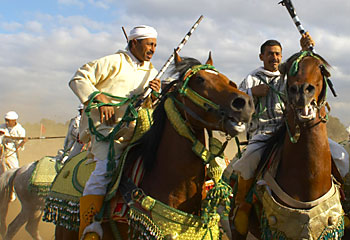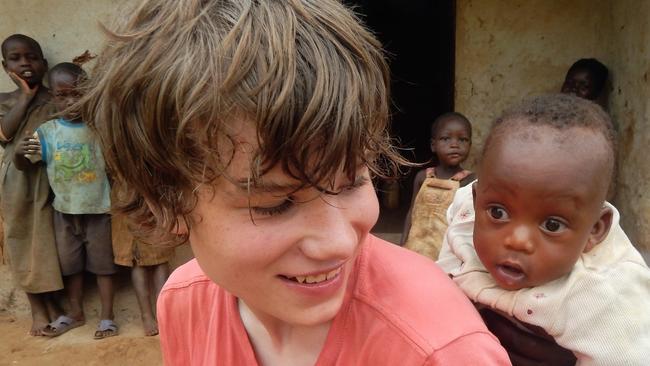Sultans of the Sahara
IT'S not surprising that no one has coined the phrase 'as energetic as a Moroccan', writes Joe Hildebrand after a laidback trip through the cities and deserts of Morocco.

IT'S perhaps not surprising that no one has coined the phrase 'as energetic as a Moroccan'. Driving through the towns and cities it's clear that a Moroccan's favourite pastime is just sitting around, followed closely – and there's really not much in it – by lying around.
In order to muster the energy to go from the horizontal to the semi-vertical position, Moroccans need constant refuelling and it is for this reason they consume huge amounts of coffee and even more mint tea.
While westerners might consider mint tea to be a soothing and relaxing drink, many are unfamiliar with the Moroccan style of preparation, which involves taking a glass full of sugar and adding a couple of teaspoons of water and, if there's time, maybe some mint.
After consuming several kilos of glucose and caffeine, Moroccans reach a state of heightened activity many of us would know as 'mild relaxation'. It's a quality we could learn a lot from and one I personally admire deeply.
It should be noted here that this condition only seems to apply to the men of Morocco. The women are too busy doing all the work. A favourite joke among men in Morocco – as elsewhere – is that women talk a lot. This is because it takes a phone book's worth of words to describe just how lazy their husbands really are.
An exception to the rule would appear to be the tribesmen of the desert areas in the south of the country.
This could be because of the different lifestyle, culture and genetic stock but may also just be because there's nowhere comfortable to lie down.
The Berbers are the original inhabitants of Morocco – in as much as anything is original in Africa, which is after all where humans originated – and present a stark contrast to their more urbanised Arab-descended neighbours in the north.
The traditional Berbers are a nomadic people, slicing across the desert in camel trains and sleeping in small camps that dot the vast dunes. For a visiting western tourist it's difficult to know what this life is like, but it can be reasonably assumed that there are few cafes.
During our time in Morocco we adopted a similarly nomadic lifestyle, the only minor difference being that our form of transport was an air-conditioned coach and the nightly camps tended to have such names as 'Sheraton' attached to them.
This is a remarkably efficient and disturbingly civilised way to see a country, particularly one as vibrant, rugged and raw as Morocco. Outside the bus is the random catastrophe of the place; inside is the abiding familiarity of our safe little group and the lulling tones of our tour guide Elinor. It's a bit like taking a McDonald's restaurant and sticking it on the moon.
So it was a welcome change of pace when we temporarily traded in our coach and found out we could get around 20 camels for it. As with many things, it was the little differences we noticed first.
It first needs to be noted that camels are angry, angry creatures and have a tendency to bite, something Elinor would never do.
I also discovered that the Sahara Desert is extremely cold in the early mornings and even more achingly beautiful. As the day looms it solemnly changes colour against the sky, as though the land is having a slow and serious conversation with the sun.
And, strangely for a place where nothing grows for as far as you can see in any direction, it convinces you that the Earth is really alive. I won't defame that magic landscape by trying to describe it further.
Camels, of course, have no respect for such majesty and wander along grumpily dropping their dung everywhere and wondering why they have to take a bunch of white people up the same hill every morning.
The Berbers too are underwhelmed by the desert, much as the average suburban Australian might not take the time to bask in the glory of the gum tree in the back yard.
Instead, they are more interested in the Moroccan national pastime of selling anything they can get their hands on to anyone who happens to be around. This is glorious, too.
One disappointing aspect is that the Berber 'blue men', so named because the indigo dye from their turbans would permeate their faces, are no longer blue and hence just men.
While they still wear blue headgear and robes, the advent of colourfast dye means these days their faces are unsullied, much to the dismay of novelty-seeking tourists.
Aside from that, the only thing to worry about is getting sand in your jellaba, which is a genuine risk and not a euphemism for being in a bad mood. That emotional condition is one of the few things in this lazily amazing country that remains in short supply.
The writer was a guest of Insight Vacations.
The Sunday Telegraph



